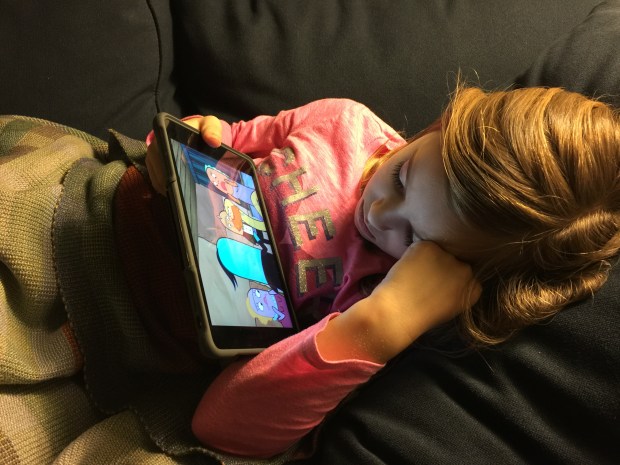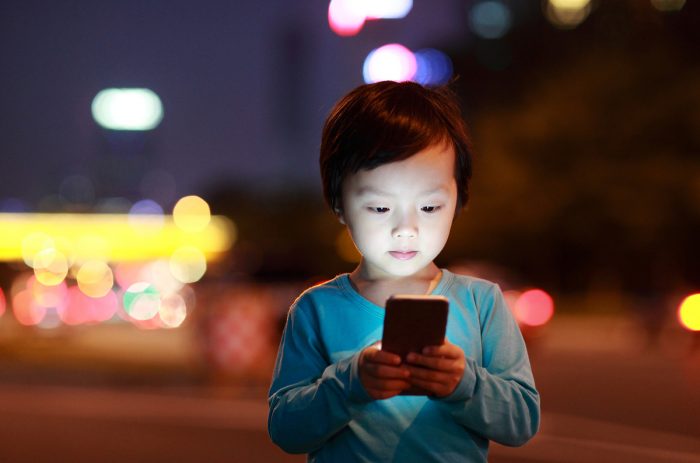The outbreak of the new Coronavirus pandemic has had repercussions that cast their shadows on the various joints of our lives, and no member of society was immune from its great effects that radically changed our way of life.

Children are among the social strata most affected by this pandemic, as they found themselves forced to stay home, far from their schools and classmates, and receive their education via the Internet. The pandemic restricted many of the recreational activities they were accustomed to, so the screens of tablets, smartphones, computers, and game consoles such as the Playstation and others were their only haven for recreation while staying at home.
There was no escape for parents to reduce the controls on the use of these devices after they used to put them for their children in order to preserve their health and based on their awareness of the harms of using them intensively so that some families allowed their children to use the Internet all day after their home laws determined them in a few hours.
There is no doubt that the sudden shift in the aforementioned lifestyle has had dire consequences for children, so that doctors and specialists in children’s behavior begin to receive more young people who suffer from behavioral problems, aggressive patterns, a decrease in social skills, attention and sleep disorders, which is a clear warning of the emergence of Another and unexpected epidemic threatens children and puts them at risk.
What makes these risks more difficult for children is that their accustomed to the aforementioned lifestyle develops into an addiction in the full sense of the word, and thus eliminating it will be like getting rid of any other addiction, and the psychological and physical effects that accompany it and symptoms such as anxiety, irritability, tremors, and nausea.

Dr. Eric Siegman of the Journal of the International Society of Pediatric Neurology explains these risks, saying: “There is empirical evidence that heavy exposure to video games in childhood may cause neurological adaptation and structural changes in neurological areas associated with addiction. And with the increase in the hours children sit in front of these screens, the beginning will begin. Its effects are quickly visible to their parents. “
Among the most prominent symptoms of children’s addiction to electronic devices are:
- The increase in their sitting time in front of them and their inability to control their desire to watch them;
- Feeling bored and losing interest in any other kind of recreational activity;
- Controlling the content they see over their conversations and behavior;
- Their reluctance to meet their friends and their preference for staying at home;
- Tantrums while trying to keep them off screens;
- Resort to deception and lies to gain more time in front of their screens;
- And they only feel happy while sitting in front of it.
Dr. Mona Yousry, medical director and social worker at Hayati Children’s Health Center in Dubai, said: “During the past five or six years, I have noticed a significant increase in the percentage of children who suffer from delayed speech and show symptoms related to autism, such as eye contact.

A child visits our center at the age of two to four, symptoms indicating a delay in growth and development, despite his ability to use the smartphone with great skill, and based on our experiences in this field, we always recommend the need to reduce the frequency of sitting in front of electronic devices screens or even quit, as “This step has relatively direct benefits. In light of the recommendations of the American Psychological Association, our advice to parents is to keep their children away from these screens during the first three years of their lives, or what is known as early childhood.”
Seek expert advice
Amidst the effects of the “COVID- 1 9 ” pandemic that has affected various fields of our lives, we must direct more focus towards our children, and realize that they are less able than us to absorb these difficult times, and they need constant support to keep them away from any unnecessary pressures or disturbances. To do this, we would not find a better way than to seek expert advice from specialists in dealing with children with developmental, behavioral, and autism disorders in specialized centers, where experts usually undertake the task of behavior analysis, psychological support, speech and language therapy in safety.




![The Top & Most Popular Seafood Bucket Restaurants in Dubai for you [Never Miss]](https://uae24x7.com/wp-content/uploads/2020/09/8-seafood-in-a-bucket-scaled-e1600739237403.jpg)
![Procedures for Renewing the Driving License in Abu Dhabi [3 Simple Steps]](https://uae24x7.com/wp-content/uploads/2020/07/Capture-9-e1595666454466.jpg)





